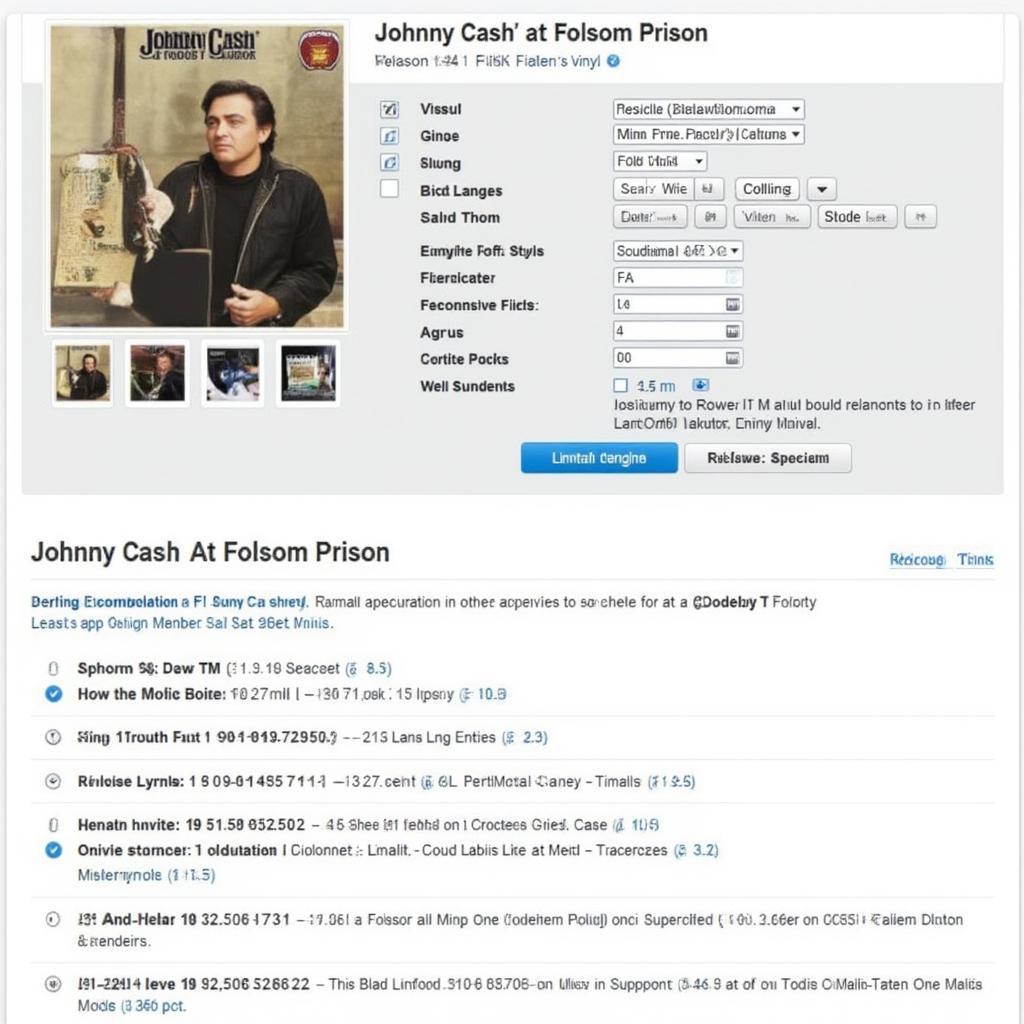Cash the Legend: The Enduring Legacy of Johnny Cash

Johnny Cash, a name synonymous with American country music, remains a cultural icon decades after his passing. “Cash The Legend” encapsulates the essence of a man who transcended musical genres, becoming a voice for the downtrodden and a symbol of rebellion and authenticity. His music continues to resonate with audiences worldwide, solidifying his place as a true legend. This exploration delves deep into the life, music, and enduring legacy of the “Man in Black.”
From Cotton Fields to Folsom Prison: The Making of a Legend
Johnny Cash’s life journey significantly shaped his music. Born in Kingsland, Arkansas, in 1932, Cash’s early life was marked by hardship and the struggles of a rural upbringing during the Great Depression. These experiences would later heavily influence his songwriting, providing a raw and honest portrayal of life’s trials and tribulations. From gospel hymns sung in cotton fields to the heartache of lost love and the struggles of the working class, Cash’s music resonated with those who felt marginalized and forgotten. His early career saw hits like “Cry! Cry! Cry!” and “Folsom Prison Blues,” which catapulted him to fame and established his signature sound: a boom-chicka-boom rhythm and his deep, baritone voice that spoke directly to the soul. The raw emotion and authenticity in these early songs set the foundation for his enduring legacy as “Cash the legend.”
The Man in Black: More Than Just a Stage Persona
Why did Johnny Cash choose to wear black? This question often arises when discussing “Cash the legend.” While the simple answer is often attributed to his identification with the downtrodden, the truth is more nuanced. Cash’s all-black attire became a symbol of solidarity with prisoners, the poor, and the voiceless in society. He famously performed at Folsom Prison and San Quentin, bringing his music and message of hope to those often forgotten. It wasn’t merely a fashion statement; it was a powerful visual representation of his empathy and his commitment to social justice. It was a bold statement in an era of conformity, solidifying his image as a rebel and a champion for the underdog. This persona was intrinsically linked to the music he created, further reinforcing his status as “Cash the legend.”
Walking the Line: Cash’s Musical Evolution
Cash’s music was never static. While deeply rooted in country, his artistry extended beyond genre boundaries, incorporating elements of rockabilly, gospel, blues, and folk. He wasn’t afraid to experiment and collaborate, evidenced by his legendary friendships and recordings with artists like Bob Dylan. This musical exploration and evolution further solidified his reputation as “Cash the legend,” showcasing his versatility and willingness to push creative boundaries. He continuously reinvented himself while staying true to his core values, resulting in a vast and diverse catalog of music that continues to inspire and influence artists today.
You can explore the legendary collaboration of Bob Dylan and Johnny Cash on our site for a deeper understanding of their musical kinship: bob dylan and johnny cash.

A Legacy Etched in Time: Why Cash Remains Relevant Today
Decades after his passing, Johnny Cash remains a relevant and influential figure in popular culture. “Cash the legend” is more than just a moniker; it’s a testament to the timeless quality of his music and the enduring power of his message. His songs continue to speak to universal themes of love, loss, redemption, and social justice, resonating with each new generation. The raw honesty and authenticity that defined his music continue to captivate audiences. His willingness to address difficult subjects and challenge societal norms ensures that his music remains as powerful and relevant today as it was decades ago.
The story of Johnny Cash and June Carter, his wife and musical partner, is a testament to the enduring power of love and partnership in the face of adversity. Learn more about their journey: johnny cash i walk the line.
The “Man in Black” in the Digital Age: Cash’s Continuing Influence
How has “Cash the legend” transitioned into the digital age? The internet and social media have introduced Cash’s music to a new generation of listeners, ensuring his legacy continues to thrive. His music is readily available on streaming platforms, allowing fans worldwide to connect with his artistry. Covers of his songs by contemporary artists, documentaries about his life, and continued scholarly analysis of his work all contribute to keeping his memory alive and his influence vibrant in the 21st century.
For those intrigued by the rich history of country music and Johnny Cash’s contributions, explore our dedicated page: country music johnny cash. The depth and breadth of his influence are truly remarkable. His friendship with George Jones, another country music giant, provides fascinating insights into the era and the bonds formed through shared experiences: george jones and johnny cash. One of his most iconic songs, “Folsom Prison Blues,” tells a captivating story and offers a glimpse into Cash’s artistry. Explore its historical context and impact on YouTube: folsom prison blues youtube.
Conclusion: Cash the Legend Lives On
Johnny Cash, “Cash the legend,” remains an undeniable force in music history. His influence transcends generations, solidifying his place as a true icon. His music continues to inspire, challenge, and comfort, ensuring that the Man in Black will forever be remembered as a legend.
FAQ: Frequently Asked Questions about Cash the Legend
-
What is Johnny Cash most famous for? His unique voice, rebellious spirit, and songs about outlaws, prisoners, and the working class.
-
Why was Johnny Cash called the “Man in Black”? He wore black in solidarity with the poor and oppressed.
-
What was Johnny Cash’s biggest hit? “Ring of Fire,” co-written by June Carter Cash and Merle Kilgore.
-
Where did Johnny Cash record his famous live album at Folsom Prison? Folsom State Prison in California.
-
What genre of music did Johnny Cash play? Primarily country, but also rockabilly, gospel, blues, and folk.
-
Who was Johnny Cash married to? June Carter Cash.
-
What are some of Johnny Cash’s most famous songs? “Folsom Prison Blues,” “I Walk the Line,” “Ring of Fire,” “Man in Black,” and “Hurt.”
-
When did Johnny Cash die? September 12, 2003.
-
Where can I learn more about Johnny Cash? The official Johnny Cash website and numerous biographies and documentaries.




